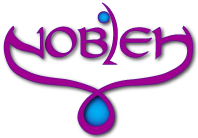
Homage to “ Molana Rumi”
Beloved soul friends,
Today 17DEC, is the day when “ Molana Rumi” left his body.
This poem was the last poem he recited before his departure to light and reunion with his beloved.
Since his master” Shams” disappeared, Rumi never stopped reciting his love poems until his last breath.
His last poems were recited by him, written by his son “ Soltan Valad” and his faithful disciple :“ Ḥusām al-Dīn e Valad”.
Rumi’s last poem on the day he left his body and became the light into our souls…
Enjoy the poem and lets meditate together on his message.
“ Ruhash Shad” means May his soul rejoice… 😌🙏🏽🦋✨
🦋Translation :
Go, lay your head on the pillow
Leave me alone with my solitude, I am the broken night walker who’s infected by the Love virus.
It is only us and the waves of thoughts, alone from night to day
If you like, come and forgive, If you like go and persecute me
Run away from me if you don’t want to be affected by my virus!
Choose Sanity and leave this path of calamity.
This is a pain other than death, which has no remedy.
Then how can I ask you to cure this pain of me?
Yesterday, in my sleep I saw a wise man on the road of love
He pointed at me to walk toward him
If there is a dragon on the road , there is also a Love as bright as an emerald.
With the glow of this emerald go and slay the dragon, then keep on walking on the road of love.
For the king of the glory, faithfulness is not necessary
Oh you, pale faced lover, be patient and faithful for him
It is only us and the waves of thoughts, alone from night to day
If you like, come and forgive, If you like go and persecute me.
This is a pain other than death, which has no remedy
Then how can I ask you to cure this pain of me.
Stop it now! As I am without me now as you are performing the art of augmentation.
You can choose the path of philosophers like ( Boo Ali Sina & Boo Ala ) , but only the path of love with all its tricks, pain and dragons will lead you to peace of mind.
🦋In its origin language “ Farsi” :
رو سر بنه به بالین تنها مرا رها كن
ترك من خراب شب گرد مبتلا كن
ماییم و موج سودا شب تا به روز تنها
خواهی بیا ببخشا خواهی برو جفا كن
از من گریز تا تو هم در بلا نیفتی
بگزین ره سلامت ترك ره بلا كن
ماییم و آب دیده در كنج غم خزیده
بر آب دیده ما صد جای آسیا كن
خیره كشی است ما را دارد دلی چو خارا
بكشد كسش نگوید تدبیر خونبها كن
بر شاه خوبرویان واجب وفا نباشد
ای زردروی عاشق تو صبر كن وفا كن
دردی است غیر مردن آن را دوا نباشد
پس من چگونه گویم كاین درد را دوا كن
در خواب دوش پیری در كوی عشق دیدم
با دست اشارتم كرد كه عزم سوی ما كن
گر اژدهاست بر ره عشقی است چون زمرد
از برق این زمرد هی دفع اژدها كن
بس كن كه بیخودم من ور تو هنرفزایی
تاریخ بوعلی گو تنبیه بوالعلا كن
🦋 the first 2 lines ( How it is pronounced ):
Ro sar beneh be balin,
Tanha mara raha kon
Tarke man e kharab e shab gard e mobtala kon.
About “Bu Ali Sina” & “ Boo Ala”, mentioned in the last line of this poem from Wikipedia :
Ibn Sina, also known as Abu Ali Sina, Pur Sina, and often known in the West as Avicenna, was a Persian polymath who is regarded as one of the most significant physicians, astronomers, thinkers and writers of the Islamic Golden Age, and the father of early modern medicine.
Boo Ala or Abulola Moarrensis,] was a blind Arab philosopher, poet, and writer.Despite holding a controversially irreligious worldview, he is regarded as one of the greatest classical Arabic poets.
Described as a “pessimistic freethinker”, al-Ma’arri was a controversial rationalist of his time,citing reason as the chief source of truth and divine revelation. He was pessimistic about life, describing himself as “a double prisoner” of blindness and isolation. He attacked religious dogmas and practices, was equally critical and sarcastic about Judaism, Christianity, Islam and Zoroastrianism, and became a Deist.
He advocated social justice and lived a secluded, ascetic lifestyle.] He was a vegan, known in his time as moral vegetarianism, entreating: “do not desire as food the flesh of slaughtered animals / Or the white milk of mothers who intended its pure draught / for their young”. Al-Ma’arri held an antinatalist outlook, in line with his general pessimism, suggesting that children should not be born to spare them the pains and suffering of life.


Comments are closed